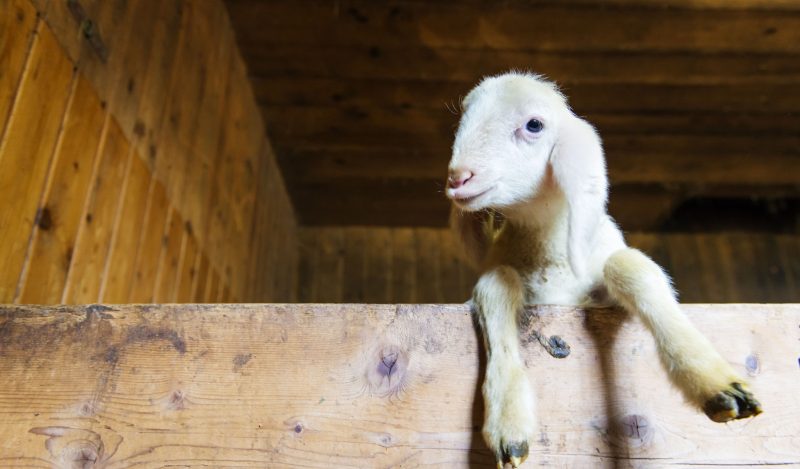“Mommy, can I be a Covid lab rat?”
That is a request most parents will never hear and it is a request that very few parents would ever want to hear.
But, unlike the more typical “Can I have a pony?” request, letting your child be a Covid shot test subject is a request that can actually be granted around the nation.
Right now, for example, Pfizer/BioNTech is running an ongoing clinical trial to test the effectiveness of its shots (the shot is not a vaccine as it does not prevent catching the virus or transmitting the virus as typical vaccines do) on kids.
Pfizer has been running radio and other ads looking for test subjects; this is how they describe the study on their “Enrolling Children 6 to 23 months old for a COVID-19 Vaccine Study” website:
This study will help us learn how well our updated COVID-19 vaccine works in babies and toddlers who have not been previously vaccinated and see if the number of recommended doses can potentially be reduced for children under the age of 5. The study vaccine has been authorized by the United States Food and Drug Administration for children at least 6 months of age. It is designed to protect against the newer COVID-19 variant called XBB.1.5.
The company is also running similar trials for older kids and, of course, adults.
Clinical trials for drugs and procedures involving children are not inherently wrong and they are conducted safely around the world almost daily.
But this Covid trial stands out for a number of reasons.
First, the trial only involves kids who have never had a Covid shot before. The likelihood that a parent who has declined to get the shot for their kids in the first place will say “We chose not to get the shots for our kids, but feel free to experiment on them with the stuff we previously declined” is minimal.
In other words, if a parent didn’t feed their kid aluminum foil-flavored ice cream before it is highly unlikely they would feed their kid an experimental version of aluminum foil-flavored ice cream, even if you paid them (the trial comes with certain compensation enticements – Pfizer did not respond to a request for exactly what they are in this trial, though industry averages would indicate the pay would be between a few hundred to a few thousand dollars).
Second, there is the matter of “informed consent.” A trial subject must give permission freely, be told of any risks, and understand the entire situation. Clearly, nine-month-olds cannot do that.
It is perfectly legal for parents to give their “informed consent,” but here we get into the third problem: the risk/benefit question.
For example, during the pandemic (early 2020 to May 2023) there were 41 Covid deaths in California of kids under five. That number does not differentiate between “died with Covid” or “died from Covid;” that is a debate that continues to rage across the country and shall be put aside for the time being.
Every death of a child is a tragedy and this article is not intended to lessen that fact. However, children in general were not at all likely to get, let alone die from, Covid during the pandemic.
During the pandemic, there were about (rolling average) 2.4 million (about 6% of the total population) under-fives in California and there were about 385,000 cases of Covid reported in that age group.
Currently, about 3.2% of California’s under-fives have had the latest shot. That’s on par with the national average. What is interesting is that of the 70,817 kids who have received the shot in the state, 41,224 live in the Bay Area. In other words, the Bay Area has 20% of the state’s population, but 57% of the state’s “vaccinated” toddlers and babies. But do not ever think that politics has had nothing to do with Covid protocols.
During the pandemic, the overall likelihood of a child dying from/with Covid was about 1 in 60,000; for those over 75 – about 6.5% of the population or 2.7 million – there were about 51,000 with/from Covid deaths, or about 1 in 50.
The risk, clearly, is extremely different depending upon age and general state of health.
With a relative risk of being harmed by Covid, the risks of the Covid shot itself must be considered carefully – note: no kid in the study will get a placebo for comparison purposes.
The Covid shots, in the general population, did have significant side-effects and did cause a number of deaths. While these numbers are not broken out by age, in the same time period there were 640 deaths and 89,000 “adverse effects” experienced (much much more than just a sore arm) by Californians.
Also during the same time period, all other vaccines combined caused 66 people to die and 14,000 to have a reportable “adverse effect.” (Note – the numbers are taken from the CDC’s “vaccine adverse event reporting system,” a tool it stood by as an early warning device for decades…that is, until the Covid problem numbers got too high.)
That puts the general odds of something bad happening to a person after they get a Covid shot at about 1 in a 1,000 and some studies have shown it to be 1 in 800. In other words, the risk from the shot appears to outweigh the risk of Covid itself by a factor of 60 times.
Citing the uncertainty of benefit, it should also be noted that the European Union has not cleared the shot at all (with minor exceptions) for the under-fives and were hesitant in allowing them for the under 18s.
Clearly, the risk outweighs the reward, as it were, and it is unclear – because Pfizer did not answer any request for information/comment (see questions below) – if parents are given those figures when making the decision to enroll their kid in an experimental drug program.
Adults calculate risk and reward constantly – from “Can I make that light before it turns red?” to “Should I tease that lion?” But a seven-month old is simply not capable of doing so and while certain clinical trials do hold out serious hope and are important for society at large, a trial such as this for such a limited reward – kids very very very rarely get, let alone suffer seriously, from Covid – seems dubious.
In other words, if you wanted to test a new malaria drug you would not do so on Santa’s elves at the North Pole because there are no mosquitoes there to infect anyone.
According to the Belmont Report, which set baseline standards for human-involved clinical trials in the late 1970s (it was a government reaction to the horror of the CDC’s own “Tuskegee Syphilis Study”) one of the three core standards for justifying clinical trial testing is “beneficence.”
In other words, there is an obligation to protect persons from harm by maximizing anticipated benefits and minimizing possible risk and harm.
That risk/benefit calculation obviously changes in regard to other far more common childhood maladies, making participation in those studies potentially far more “beneficent.”
But in the case of Covid, the question is how are maximal, as it were, are the anticipated benefits?
Very very minimal and that is the problem, said Dr. Clayton Baker, former Clinical Associate Professor of Medical Humanities and Bioethics at the University of Rochester.
“Given the real and well-established risks of harm (including myocarditis and death), and given the functionally zero potential for benefit (since [Covid] is universally mild in children), the risk-to-benefit ratio for the [Covid] mRNA injections in children is infinitely bad,” Baker said. “There is no ethical reason whatsoever to continue clinical trials of these products in children, and all such trials should be stopped.”
Come to think of it, maybe just get the kid the pony instead.
Here’s a link to an on-going kids Covid study with a handy map so you can find a location near you (mostly Bay Area): A Study to Learn About Variant-Adapted COVID-19 RNA Vaccine Candidate(s) in Healthy Children
For clinical trials in general, you can look here for one that you might be interested in taking part in:
For clinical trials just about Covid, you can look here:
As noted above, here are the questions Pfizer did not reply to:
-Exactly how is informed consent handled? I assume a parent/guardian can provide said consent?
-Do (or have) you run trials with previously vaccinated children?
-What child/youth trials have been run in the past and what have been their results?
-What is the compensation amount?
-Have any previous trials shown conclusively that the vaccine ameliorates Covid severity in children?
-When and in what manner did the FDA approve this trial?
-When do you expect to conclude the trial?
-Is this trial aimed at testing a “booster” shot or to cover a new variant?
-Has any child in any trial conducted had a significant and serious reaction requiring hospitalization and/or led to death?
-It appears one of the points of the study is to figure out how to cut the number of doses as well as check effectiveness. Is that correct?
-How many children – nationwide and in California specifically – have signed up for/been through the trial so far?
-What are the differences between trials involving children and those involving adults?
-Will Pfizer conduct trials each time it comes out with new variant vaccine shot?
Republished from the author’s Substack
Join the conversation:


Published under a Creative Commons Attribution 4.0 International License
For reprints, please set the canonical link back to the original Brownstone Institute Article and Author.









